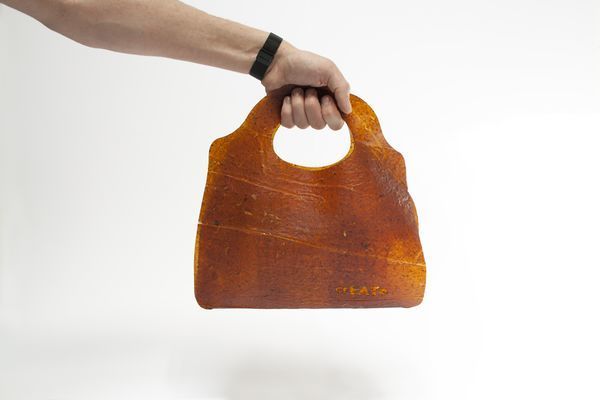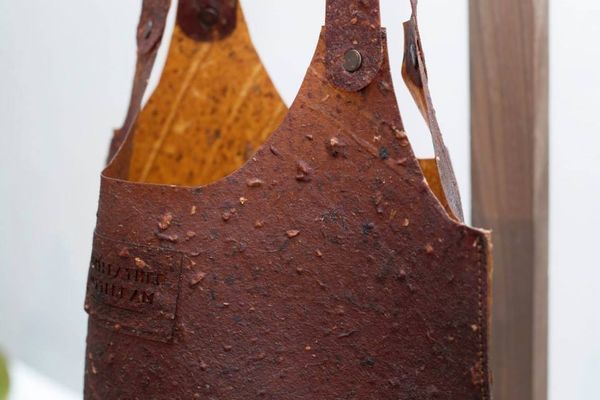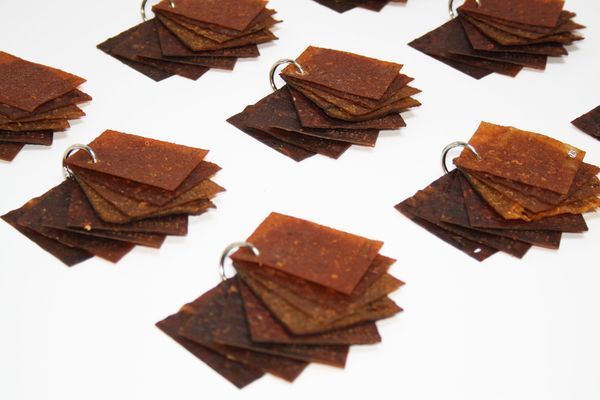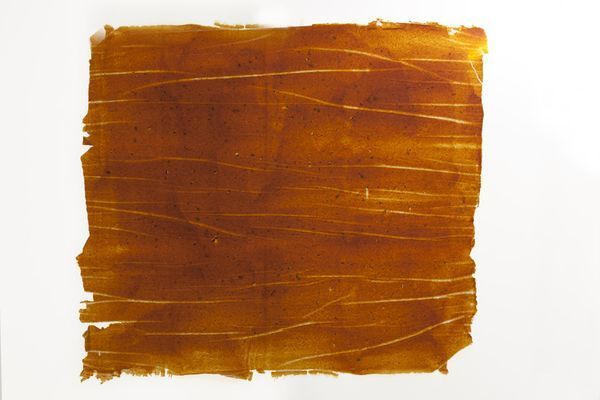Fruit leather
Fruitleather Rotterdam
Six students from the Willem de Kooning Academy found a way to make leather out of leftover fruit. With this project the students want to create awareness to the problem of food waste and show that there is a solution for it. We live in a world where raw materials are scarce and are increasing every day. Worldwide 1.3 trillion tons of food is thrown away every year and 30% of the world's agricultural land is used to produce food that will be thrown away. But what if we did not see fruit waste as a waste product but as a valuable starting material?
Twice a week there is a large market in district Blaak, where a lot of fruits and vegetables are sold. When the food gets crushed or when it is overripe it is no longer ‘suitable’ for sale. To get rid of the old fruit legally it will cost the owners about twelve cents per kilo. Therefore the merchants sometimes throw away their waste at other places than intended. The students found the perfect solution: they take charge of the old fruit, the merchants don’t have to pay anything and the students get free material.
For weeks the students collected loads of fruit waste at the market in Rotterdam to process it into pieces of fruit leather. As a prototype, the designers created a handbag that is made entirely out of fruit leather. This bag brings together the quality and the capabilities of the new material. The production process is as follows; you have to take fruit with a lot of sugar in it, like mangos plums or nectarines. Then you mix and cook the fruit so all the bacteria will get out. Then there arises a kind of soup which you spread out over a surface, when it dries it will become a piece of fruit leather.
However, before the students are starting to work on a large scale with fruit leather, there is still a long way to go. Thus, the material is not strong enough and is not water resistant yet. Therefore, the students want to collaborate with companies and organizations to improve the material in a technical way and to create a wider range of products. Currently they are busy with developing the material to be strong enough to be used for shoes, handbags, chairs and other products in the future.
The project ‘Fruit leather Rotterdam’ connects with social design because it creates awareness to the problem of food waste in our society. The students made something new and useful with a waste material. By doing this they reduce waste which can be a positive contribution to the throw away culture where we life in nowadays. The quality of this project is that the product is made entirely out of natural materials. Therefore, the students think to use a natural coating to make the material waterproof (instead of epoxy or other chemical resins). This way you will instantly think it is a sustainable product, yet there is a lot energy needed in producing fruit leather. Mostly because of the cooking, pureeing and drying it. The question is whether the fruit leather material is really much more sustainable than processing it into compost or animal food. In the other way, if fruit leather would eventually have the same qualities as real leather it would be better for the environment. Since it is less harmful processing fruit then cows. (In order to keep the quality of animal skins a lot of toxic chemicals are used which end up in the soil. The amount of waste and pollution caused by the leather industry is huge.)
I think this project has a lot good aspects because it shows new perspectives and possibilities in the way we use materials right now. If they develop the material in a way that it can be used it would give a lot new solutions.
http://www.foodlog.nl/artikel/studenten-ontwikkelen-leer-uit-fruitafval/
http://www.ddw.nl/evenement/874
http://www.youtech.nl/diervriendelijk-en-hip-fruit-leather/



